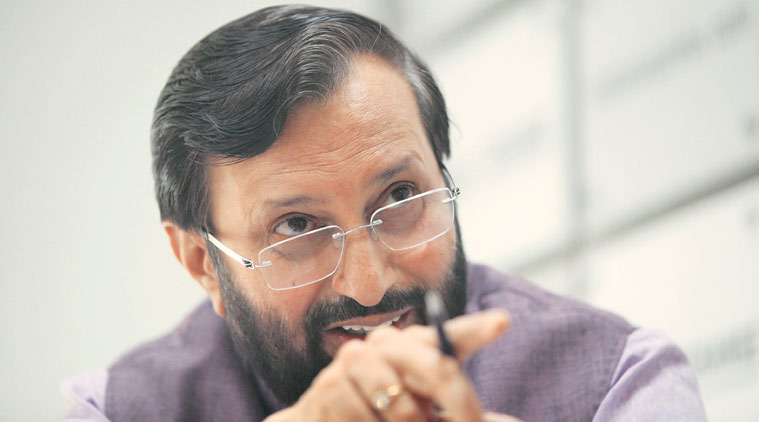Stay updated with the latest - Click here to follow us on Instagram
Security clearance for broadcasters: The government is insecure about security
The government's argument that broadcasters need security clearance because they create content that can mould public perceptions is understandable.
 Minister of Information and Broadcasting Prakash Javadekar
Minister of Information and Broadcasting Prakash Javadekar
The Ministry of Home Affairs has said it plans to do away with the security clearance for multi-system operators (MSOs) while the Ministry of Information and Broadcasting has clarified that companies which want to set up a broadcast network will still have to secure the clearance. Cable operators in the country have never needed any such clearance and so they continue to be outside the ambit of this condition despite so many of them running local channels, including news and current affairs services, without even a license from the government, let alone security clearance.
The situation, to say the least, is skewed. For those living under a rock, the three sectors are part of the same industry, that is broadcasting. Simply put, broadcasters or the owners of TV channels produce content which is streamed into consumer households through cable operators by the MSOs.
[related-post]
The government cannot be faulted for wanting to ensure that those desirous of running a business in the country do not pose a potential security threat to its citizens. By asking companies to undergo a security check, it is performing an essential function. But by having different rules for the same set of operators, it creates room for doubt about its motives and raises questions about its efficiency.
The government’s argument that broadcasters need security clearance because they create content that can mould public perceptions, spread misinformation on a mass scale, create unrest in the country, or incite violence and other serious mischief, is understandable.
On the face of it, MSOs only carry the content broadcasters produce but to argue that since they aren’t disseminating information they cannot be toxic seems illogical. MSOs are the carriers of content. India is a large country with nooks and crannies that can easily escape the security radar. For argument’s sake, an MSO may carry channels that are not permitted in the country because of the aforementioned concerns. A security clearance for broadcasters without one for MSOs is, therefore, meaningless.
More important, however, is that more than 60,000 cable operators in the country do not need any security clearance even though a large number of them are known to operate local channels, including news and current affairs channels, without permission from the government. Despite repeated complaints, little has been done to check these offenders.
Incidentally, the government runs an Electronic Media Monitoring Centre to keep tabs on the content aired by TV channels. There is, however, no mechanism in place to monitor the content aired by local cable operators because they aren’t meant to be carrying original content in the first place.
If the government thinks broadcasters can pose a security threat then MSOs and local cable operators can spell danger too.







